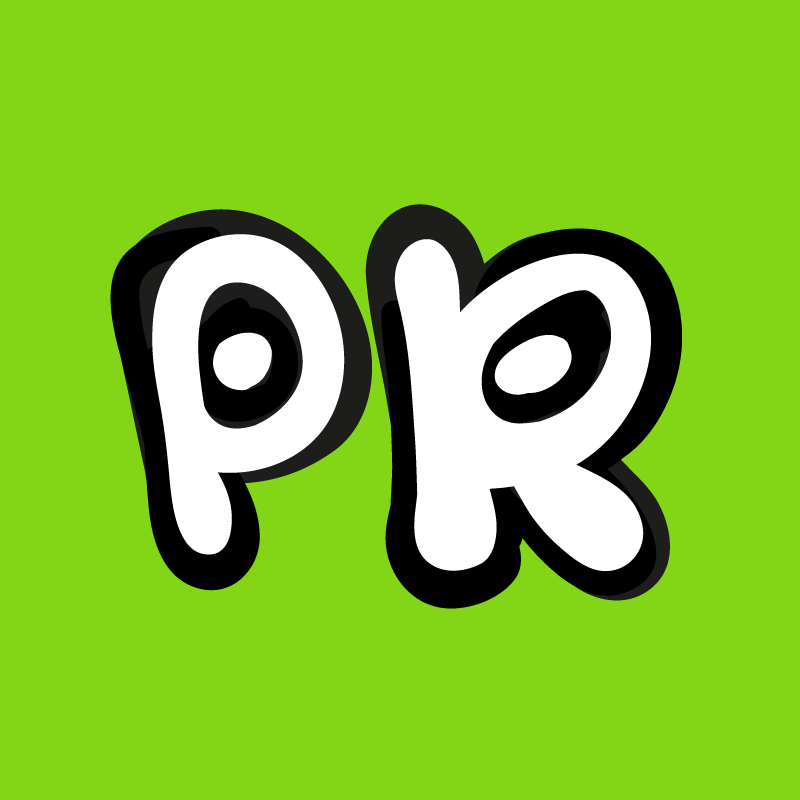PR ON THE GO May 9, 2024
Expert interview with Gregory Frye, Strategic Advisor for Business Innovation & Growth
Meet this strategy expert
Gregory Frye is a strategy advisor & coach, storyteller, and founder of Gregory Frye’s PlotPoint Rebellion, where he consults with start-ups and scale-ups on all things strategy. He also enjoys ruffling corporate feathers whenever the opportunity arises. Building on 20+ years of experience in business, marketing, and storytelling, Gregory pivoted to strategic advisory to better serve founders, leaders, and enterprises toward sustainable value creation and lasting competitive advantage.
For PR ON THE GO, Gregory shares insights on the power of strategy and storytelling for startups and scale-ups.

Gregory Frye, Strategic Advisor for Business Innovation & Growth
"Most people have critical misconceptions about what strategy is and how it works, so let's start there."
"Strategy is what you choose NOT to do as a business."
You're a gifted storyteller. At first, this may not seem like a strategy, as most entrepreneurs think about defining categories, niches and audiences. But how is storytelling the key to your strategic advice?
Gregory: To be clear, storytelling is not a strategy. It is a dynamic tool that reinforces strategic thinking and decision-making.
I approach strategy through the same fundamental frameworks that were developed by masters of the craft such as Michael Porter, Roger Martin, and A.G. Lafley.
However, I use storytelling as a tool to assess, analyze, communicate, clarify, and simplify – all parts of my internal Narrative Due Diligence (NDD) methodology. When making decisions about categories, niches, and audiences, narrative nuance is crucial for any enterprise.
In essence, I’ve found that strategy and storytelling reinforce each other, which is especially interesting when you realize most business leaders and managers struggle with both.
With the global economy as fragile as it is, many business owners are pulling back on investment in creative and unconventional approaches and looking for a safe harbor. But the reality is that there's no safe harbor in sight as technology advances at lightning speed, consumer behavior changes faster than ever, and the availability of overall resources shifts unpredictably - just to name a few highlights of our upside-down world in 2024. What's the best argument you can make for investing in the exploration of new solutions during this time?
Gregory: Strategy is not a new solution although it didn’t really hit the business world in a meaningful way until Michael Porter’s work in the 1980s.
And strategy is only unconventional in that most leaders, entrepreneurs, and managers etc. have ineffective ideas about what strategy is and how it works.
They often confuse strategy with planning, keeping their options open, best practices, optimizing the status quo, or even just having a vision statement, etc.
A lot of business leaders claim that medium-term or long-term strategy is impossible because of constant changes in the marketplace or the volatile nature of the economy.
However, this kind of thinking puts businesses in a constant reaction mode, where they’re more likely to invest in wasteful activities and a more strategic competitor can quickly outpace them.
So what is strategy? At its most basic, strategy is an integrated series of choices that positions a business to achieve sustainable value creation and lasting competitive advantage.
Read that again.
Strategy is what you choose NOT to do as a business.
What can a client expect when they come to you for business growth? Where do you start, where does it go?
Gregory: All clients at the PlotPoint Rebellion start with a series of low-risk, conversational, virtual workshops.
The first workshop zeroes in on strategic foundations.
We start with creative curiosity about the client’s business, their team, their current focus, opportunities, challenges, and how they’ve approached strategy in the past. Then we align on what strategy actually is, how it works, and the fundamental frameworks of strategic thinking and decision-making in relation to their business.
After this first session, clients can either take these learnings and implement them on their own – or they can sign up for the rest of the program with workshops #2 and #3, where we engage in deeper work on their strategic choices and activities system.
These workshops are never about “fixing” a broken strategy or telling clients how to run their business. This is about equipping them with tools and fresh perspectives that will serve them in their journey.
When clients desire further strategic advisory, coaching, or collaboration beyond the trilogy of workshops, they can pick from three different retainer options, depending on their needs.
These options range from ongoing virtual coaching/advisory to onsite work with entire leadership teams.
From your experience: Which opportunities do startups often overlook?
Gregory: The biggest oversight is clarity on strategic fundamentals. Strategy is relevant at any stage of business. It requires tough choices, creativity, curiosity, reiteration, assertive inquiry, focus, and rigor.
I’ve been part of the startup world for a long time, and I’ve seen a lot of startups and larger businesses struggle because they’re straddling too many choices, which dilutes their efforts and resources.
Or they’re completely overlooking entire sets of choices, and as a result playing to participate instead of playing to win.
Does strategy guarantee success? Absolutely not. But it certainly increases the likelihood of success across the big, tough choices, day-to-day decisions, and your overall market positioning.
Without strategy, businesses may experience a few early wins – but it’s like navigating the seas with a leaky ship, no map and faulty compass. You’re setting yourself up for failure.
Submit your startup interview: This is the Hack I've used to Grow My Business.
Are there specific tactics that stand out to you right now that you'd advise startups to invest in right now? e.g. podcasting, traditional media coverage, community building...
Gregory: This question illustrates a big reason why I pivoted from marketing strategy to overall business strategy.
It’s easy to come in and say, oh you should start a podcast or a blog or whatever. Let’s get some bylines out there. Your audience would love this.
However, you can only develop a great marketing strategy within the context of an overall great business strategy.
I’ve learned that when businesses come to me for marketing advice, even though I have a lot of insights and playbooks for marketing, I’m doing them a disservice if we don’t raise larger questions about their overall strategy.
During my experience working within marketing agencies, I witnessed firsthand the cookie-cutter approaches, the mindless array of best practices – all very generic stuff that added little to zero value.
This is why the vast majority of marketing is so ineffective. A lot of agencies and even in-house teams are just copying the same best practices instead of tailoring marketing activities for better strategic fit and continuity within the business’s overall strategy.
Of course, this kind of tailoring can’t happen if the business has an ineffective approach to strategy.
Is there anything you have recently observed businesses doing or investing resources in that you would advise against?
Gregory: This question ties back to my previous answer. When a business does not effectively embrace strategic thinking and decision-making, they’re at great risk of wasting time and money on activities or capabilities that do not drive sustainable value creation or competitive advantage. Instead of a loose collection of parts in your business, you want a tight activity system where the outcome is greater than the sum of its parts.
This includes careful choices about which capabilities you’ll develop, which ones you’ll drop, and which ones you’ll outsource. The more reinforcement you have between all of your activities, the more difficult it will be for competitors to copy you.
In workshop #3 mentioned above, I work with clients to start building out their activities system map, which – along with the rest of their strategic choices – helps immensely in guiding both important and day-to-day decisions.
Lastly, who can get in contact with you? Who’s your ideal client?
Gregory: Anyone interested in strategy will benefit from the workshops I mentioned because these are fundamental frameworks applicable to any business context.
However, the workshops and the subsequent retainer options are most valuable to startup founders, managers, executives, and business leaders ready to strengthen their strategy muscles and to work on the toughest questions in their business today.
Something we forgot to ask, but you’d like to add.
Gregory: Feel free to hit me up on LinkedIn. I’m always happy to hear from other entrepreneurs.
Thank you!
Connect with Gregory Frye on LinkedIn
#PRontheGO
Subscribe to our growthhacking newsletter.
Follow the latest PR hacks from our experts.
